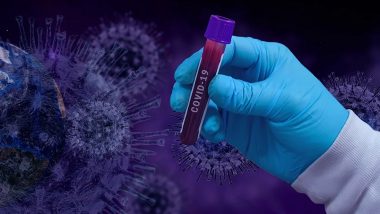Geneva, June 2: The World Health Organization stressed Monday that the new coronavirus has not suddenly become less pathogenic, following claims by a leading Italian doctor that COVID-19 had lost some of its potency.
"That is not the case at all," WHO emergencies director Michael Ryan told a virtual press briefing.
The claims by Alberto Zangrillo sparked a furore on Monday, with the Italian government urging caution.
"In reality, the virus clinically no longer exists in Italy," said Zangrillo, head of the San Raffaele Hospital in Milan, the capital of the northern Lombardy region, which has been the worst-hit by the pandemic.
"The swabs performed over the past 10 days have showed a viral load that is absolutely infinitesimal in quantitative terms compared to those carried out a month or two months ago," he told RAI television on Sunday.
That prompted cries of disbelief from other experts, who said Zangrillo may have mistaken a higher detection rate of asymptomatic cases for diminished potency of the virus.
- Still 'killer virus' -
The WHO's Ryan, an expert epidemiologist, spelled out the dangers in believing that the virus is becoming less potent.
"New viruses in human populations can do one of two things: they can evolve and become less pathogenic, or sometimes they can become even more pathogenic," he explained.
Ryan said it was not in the interests of the virus to kill everyone it infected because it could survive better if it can keep transmitting between people.
"We need to be careful: this is still a killer virus," he said.
"We need to be exceptionally careful not to create a sense that, all of a sudden, the virus, by its own volition, has now decided to be less pathogenic. That is not the case at all."
- 'We're doing better' -
Ryan detailed a possible explanation for what Zangrillo claimed he had observed.
"It may, in some ways, have something to do with the dose and length of intensity of exposure," the Irishman explained.
"In other words, the absolute amount of virus you're exposed to can determine how severe, ultimately, your illness can be.
"That has been proven with other diseases; we don't know that that's the case for COVID-19.
"It may not be that the virus itself is becoming less potent: it may be that we are, as a community, successfully reducing the number, intensity and frequency of exposure to that virus.
"On the face of it, the virus then looks weaker -- but it may be weaker because we're doing better, not because the virus is weakening."
(The above story first appeared on LatestLY on Jun 02, 2020 11:16 AM IST. For more news and updates on politics, world, sports, entertainment and lifestyle, log on to our website latestly.com).













 Quickly
Quickly


